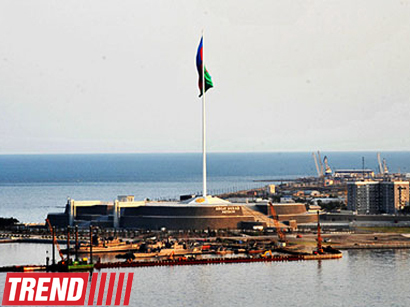Baku, Azerbaijan, Feb. 6
By Ilkin Izzet - Trend:
Armenians should not deceive themselves; they should know that the Nagorno-Karabakh has no future without Azerbaijan, head of Azerbaijani Foreign Ministry's press service, Elman Abdullayev said on Feb. 6.
Abdullayev made the remarks at a meeting with the youth as part of the Winter University for Young Leaders, organized by the Ireli Public Association.
He said that Armenia today lacks specific character in the negotiations with Azerbaijan, and creates problems in the Nagorno-Karabakh conflict's settlement.
"Today the problem does not lie in the restoration of Azerbaijan's territorial integrity and sovereignty. The problem lies in the fact that Armenia avoids the desired direction in the negotiation process. Armenian leadership knows that sooner or later the territorial integrity and sovereignty of Azerbaijan will be restored. It knows that one day this will happen. Simply Armenian officials are currently conducting a policy, not thinking about tomorrow. Our goal is to inform the international community that Armenia today avoids specificity," he said.
Abdullayev said that Armenia is in disarray due to the conflict settlement process. Non-recognition of Nagorno-Karabakh by Armenia as an independent state also stems from the fact that it does not know within which boundaries Armenia should recognize it.
"Armenia's positions are unfounded and weak from both legal and political points of view and in terms of leadership in the region. This is why Armenia hesitates in the negotiation process. This puts Armenia in a rather complicated situation. The OSCE Minsk Group co-chairs are also well of aware of this," Abdullayev said.
The situation on the frontline has remained tense since mid-January.
Most ceasefire violations are being observed in the Fizuli, Agdam, Terter, Goranboy, Khojavand, Jabrail regions, spokesman for the Defense Ministry, Lieutenant-Colonel Vagif Dargahli told Trend earlier.
Dargahli stressed that the number of ceasefire violations has recently increased. There have been over 2,000 incidents since Jan. 21.
The Co-Chairs of the OSCE Minsk Group expressed their deep concern over continued violence in the region, and stressed that recent incidents undermine negotiations and diminish the prospects for peace, the OSCE Minsk Group said following a meeting between Azerbaijani and Armenian Foreign Ministers Elmar Mammadyarov and Edward Nalbandian in Paris.
Use of force will not resolve the Nagorno-Karabakh conflict, U.S. State Department Deputy Spokesperson Marie Harf said at a press briefing.
"We have seen the reports and regret any loss of life anywhere, but certainly here as well," she said. "And our position remains that the use of force will not resolve this conflict. We call on all parties to refrain from the use or threat of force."
The conflict between the two South Caucasus countries began in 1988 when Armenia made territorial claims against Azerbaijan. Armenian armed forces have occupied 20 per cent of Azerbaijan since 1992, including the Nagorno-Karabakh region and seven surrounding districts.
Azerbaijan and Armenia signed a ceasefire agreement in 1994. The co-chairs of the OSCE Minsk Group, Russia, France and the U.S. are currently holding peace negotiations.
Armenia has not yet implemented the U.N. Security Council's four resolutions on the liberation of the Nagorno-Karabakh and the surrounding regions.
Translated by E.A.
Edited by C.N.






